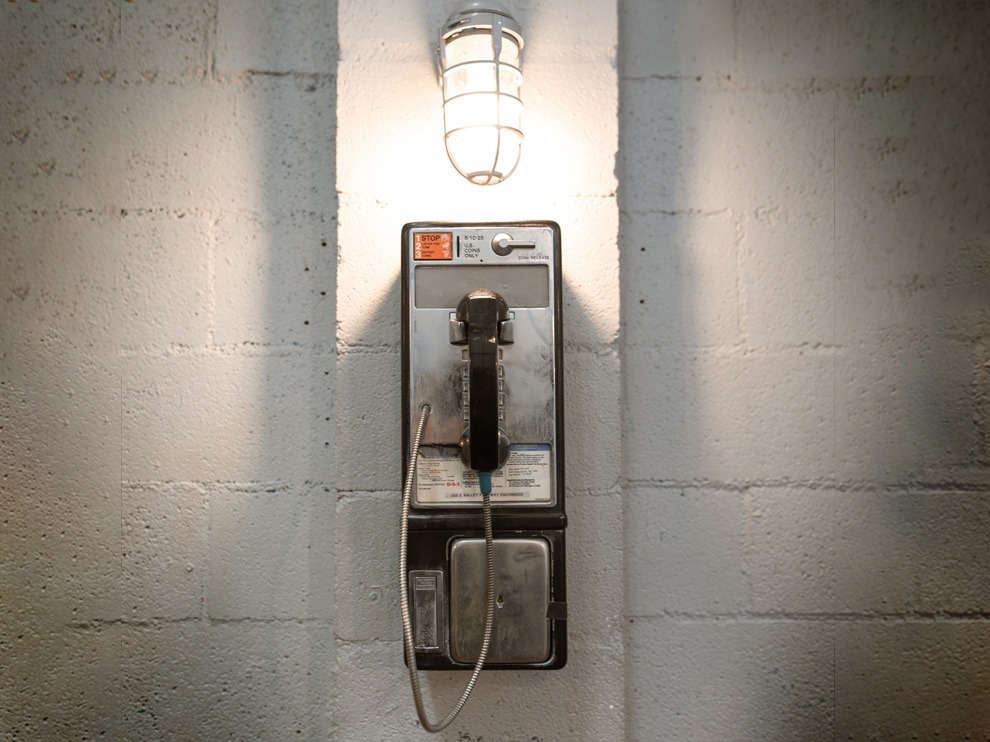South Carolina Ban on Prisoners’ Media Interviews Violates First Amendment, Lawsuit Says
The ACLU says the state’s policy is the “most restrictive” in the nation.

South Carolina violates the First Amendment by forbidding incarcerated people from speaking with the press, according to a lawsuit filed today by the American Civil Liberties Union and the ACLU of South Carolina against the state’s Department of Corrections.
“The South Carolina Department of Corrections (“SCDC”) enforces the nation’s most restrictive policy on media access to prisoners,” the complaint says. The suit alleges that the state “bans interviews by anyone, on any topic, and by any real-time means: in person, by video, or by phone. And although correspondence by mail is allowed, publication of a prisoner’s written speech is similarly prohibited.”
According to a copy of the SCDC’s media policy, the agency prohibits “personal contact interviews with any SCDC inmate, untried county safekeeper, or death row inmate by anyone,” and bans “news and non-news media representatives” from taking photographs, or audio or video recordings of SCDC prisoners.
In a press release last summer, the SCDC said, “Inmates in the custody of the S.C. Department of Corrections are not allowed to do interviews.”
“The department believes that victims of crime should not have to see or hear the person who victimized them or their family member on the news,” the press release said. “Inmates lose the privilege of speaking to the news media when they enter SCDC.”
The press release also included a copy of a letter from an SCDC official to the attorney of Richard Murdaugh, a former lawyer convicted of murdering his wife and son. (Murdaugh maintains his innocence.) The letter scolded Murdaugh and his legal team for speaking to the press.
The department’s letter stated that, in violation of the SCDC policy, Murdaugh read excerpts of his journal to his attorney, who recorded Murdaugh’s voice and sent the audio files to the media. Murdaugh received a disciplinary infraction. The letter warned the violation could jeopardize Murdaugh’s access to his attorney.
In an email to The Appeal, SCDC Director of Communications Chrysti Shain refuted the notion that imprisoned people are fully banned from speaking to journalists.
“SCDC allows inmates to write letters to the press, family or whomever they choose,” Shain said when asked for comment on the ACLU’s lawsuit. “It also provides indigent inmates with paper, envelopes and stamps. This is a well-documented and longstanding policy and practice.” She also reiterated that the department’s policy is in line with the state’s victims’ rights statute.
(Shain included a link to a 2019 story from Charleston’s Post and Courier in which reporters published letters from some incarcerated people. In 2023, the same newspaper reported that the state “prohibits inmates from speaking to journalists in person, on the phone or through video” and that imprisoned people “are not allowed to publish their own writings in media outlets.”)
Shain claimed, however, that imprisoned people can create “a prison safety concern” by talking to the press and thus gaining “notoriety from the media attention.” She warned that interviews could “create opportunities for inmates to manipulate or deceive the media” or let imprisoned people “provide false information, make threats or exploit vulnerabilities within the system[.]” She also alleged that imprisoned gang members could “send messages or signals to their fellow members outside of the prison” and that media interviews “would require a high number of staff to properly supervise and would cause undo [sic] strain to our already extended staff complement.”
In an email to The Appeal, Allen Chaney, the ACLU-SC’s legal director, said this most recent statement from SCDC conflicts with the department’s own press release from last summer.
“Prison regulations can’t shift with the wind,” he wrote. “Incarcerated people, the press, and the public are entitled to be told accurate information about what the rules are and why those rules exist.”
The ACLU maintains the ban shuts down virtually all avenues for press communication. In one example, the ACLU-SC says the state’s policies prevent the rights group from publishing interviews with death row prisoner Marion Bowman as part of a podcast. According to the complaint, Bowman is preparing a clemency petition to have his sentence commuted to life imprisonment.
“The goal of publishing Mr. Bowman’s story is to increase political pressure in favor of clemency, to shed light on the impropriety of capital punishment, and to inform the public about the inhumane treatment endured by people incarcerated in SCDC,” the complaint says.
The ACLU-SC says the ban also prevents the organization from publishing quotes or writings of Sofia Cano, a transgender woman incarcerated in South Carolina. Cano is a plaintiff in a separate ACLU-SC lawsuit alleging that South Carolina denied her necessary medical care. The ACLU says that, while incarcerated, Cano has suffered from suicidal ideation and attempted to castrate herself.
“The SCDC’s categorical rule that incarcerated people can never talk to the press or anyone else for the purpose of publication is blatantly unconstitutional,” Emerson Sykes, senior staff attorney with the ACLU Speech, Privacy, and Technology Project, said in a press release. “This policy is so broad that no court has upheld anything similar. We urge the court to block this law and defend our right to free speech as soon as possible.”
